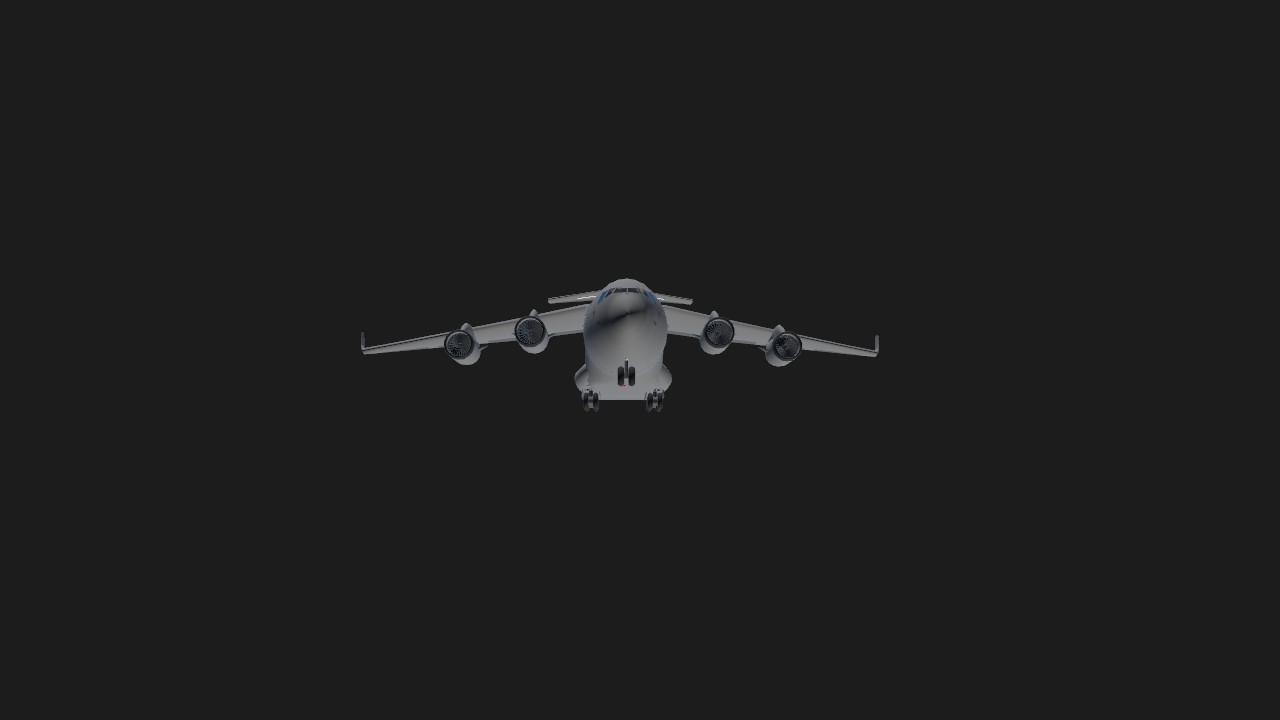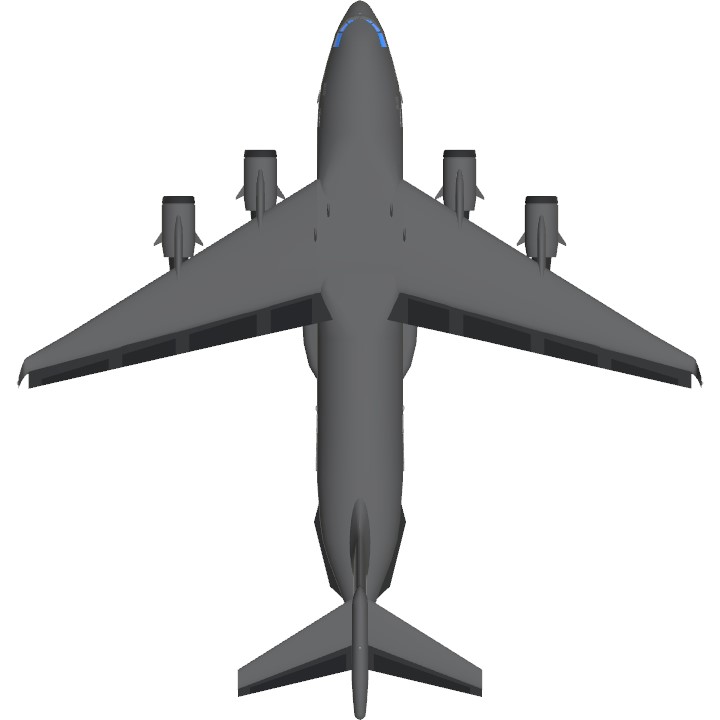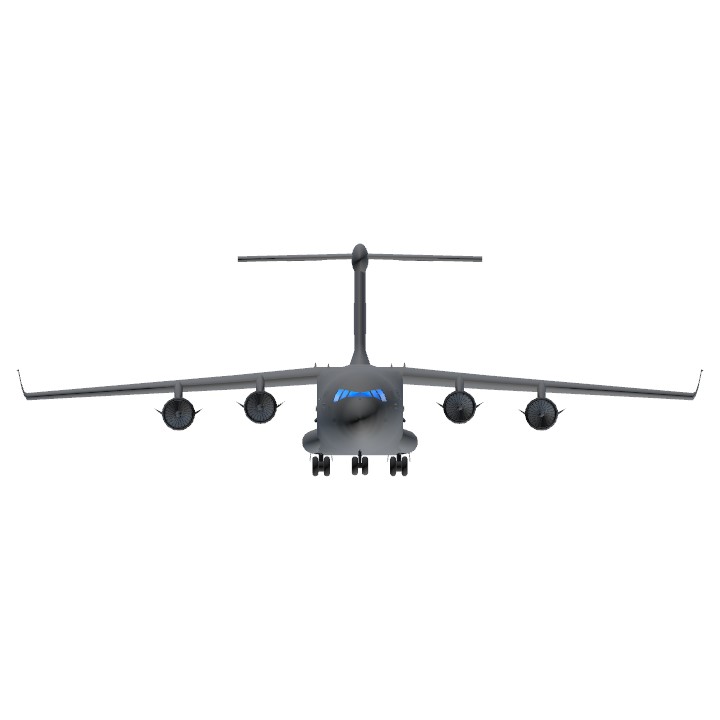The McDonnell Douglas/Boeing C-17 Globemaster III is a large military transport aircraft developed for the United States Air Force (USAF) between the 1980s to the early 1990s by McDonnell Douglas. The C-17 carries forward the name of two previous piston-engined military cargo aircraft, the Douglas C-74 Globemaster and the Douglas C-124 Globemaster II. The C-17 is based upon the YC-15, a smaller prototype airlifter designed during the 1970s. It was designed to replace the Lockheed C-141 Starlifter, and also fulfill some of the duties of the Lockheed C-5 Galaxy. The redesigned airlifter differs from the YC-15 in that it is larger and has swept wings and more powerful engines. Development was protracted by a series of design issues, causing the company to incur a loss of nearly US$1.5 billion on the program's development phase. On 15 September 1991, roughly one year behind schedule, the first C-17 performed its maiden flight. The C-17 formally entered USAF service on 17 January 1995. Boeing, which merged with McDonnell Douglas in 1997, continued to manufacture the C-17 for almost two decades. The final C-17 was completed at the Long Beach, California, plant and flown on 29 November 2015.
Specifications
General Characteristics
- Predecessor C-17 Globemaster III
- Created On iOS
- Wingspan 98.0ft (29.9m)
- Length 102.9ft (31.4m)
- Height 33.3ft (10.2m)
- Empty Weight 19,789lbs (8,976kg)
- Loaded Weight 124,245lbs (56,356kg)
Performance
- Power/Weight Ratio 0.998
- Wing Loading 85.7lbs/ft2 (418.4kg/m2)
- Wing Area 1,449.7ft2 (134.7m2)
- Drag Points 28082
Parts
- Number of Parts 203
- Control Surfaces 13
- Performance Cost 888






